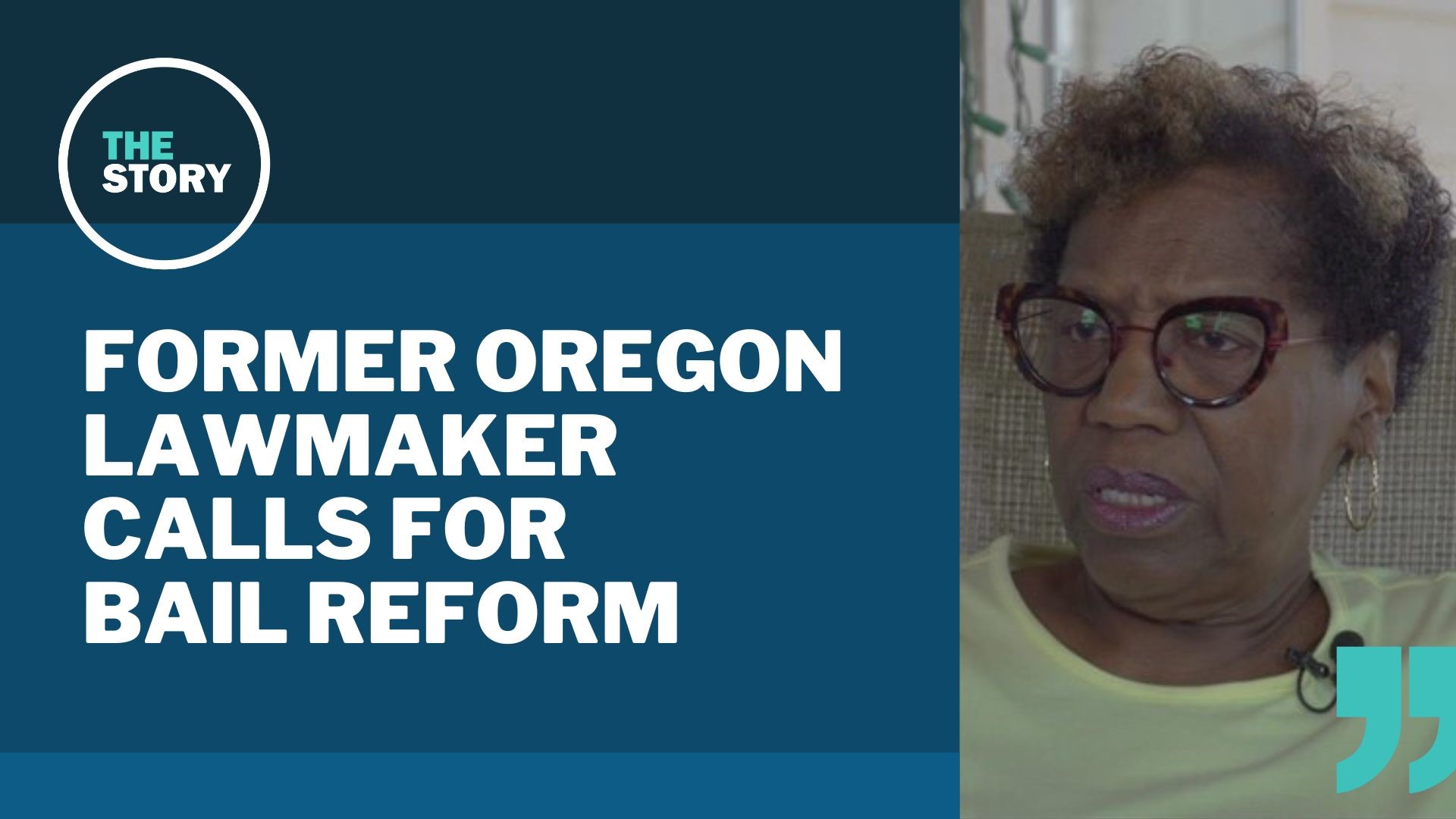PORTLAND, Ore. — A pioneer of Oregon's legislature is calling for statewide bail reform to keep domestic abusers in jail, saying the current system failed to prevent one of her loved ones from being murdered by an ex-partner.
Margaret Carter was the first Black woman to be elected to the state legislature, where she served for 22 years. She also served as chair of the Democratic Party of Oregon, CEO of the Urban League of Portland and worked as a college counselor for nearly three decades.
This week, she urged state lawmakers to review the rules surrounding bail in order to make it harder for domestic abusers to be released.
Her call comes after the murder of 36-year-old Rachael Abraham, who Carter said was like a granddaughter to her.
"She called me Grammy up to the time of her departure," said Carter.
On Aug. 20, a bail fund called the Portland Freedom Fund paid $2,000 to bail Abraham's former partner, 33-year-old Mohamed Osman Adan, out of jail. He was being held on charges related to domestic violence toward Abraham.
A week later, he was arrested and charged with murder in connection with Abraham's death.
RELATED: Portland domestic violence murder suspect had his bail covered by community fund a week prior
"The one thing we know in terms of data is that if a person is a violator of the rights of women, if they say they're gonna kill you, they're gonna try everything they can to get to you in order to kill you," said Carter. "This is about power and control, and that's exactly what created this heinous crime. This young man must have had a lot of insecurities himself too — and she's tiny — to be able to kill somebody in such a dastardly way."
Carter said that Abraham, who grew up in the foster care system near Eugene, had a hard life growing up.
"And to know it ended in this kind of tragedy, my heart is just broken. This young woman really tried hard. She always kept a job. She was always good to people. She was a good mother to her children," said Carter.
Adan had been arrested earlier in the summer on suspicion of beating and strangling Abraham, the mother of his two children. He got out without paying any bail and was re-arrested for taking off his ankle GPS monitor and going to her home.
After a hearing, a judge set his bail at $20,000.
In a statement posted to social media, the Portland Freedom Fund said its overall mission "seeks to limit the number of persons held pretrial solely for inability to pay the bail" and also seeks to reduce harm.
"In Mr. Adan's specific case, the court had deemed him eligible for bail release and he was referred to us as a financial provider for two small children with a letter of community support," the group said. "Along with support he was receiving from the community, we were in contact with Mr. Adan throughout the time between his release and re-arrest and did not receive any indications for concern."
Carter stopped short of condemning the fund, saying its intention was good.
"And when you look at what is happening to Black and brown people in this country, in this state, the rules are different. And so I imagine that they didn't look at the situation in terms of the kind of people that should be let out, the kind of people that we are going to bail. They should have rules within their own organization, and this is one that should not have been broken," said Carter.
RELATED: Dozens of inmates bailed out by Portland Freedom Fund violated release conditions or skipped court
It's unclear what rules or policies the Portland Freedom Fund has in place, and the group has not returned KGW's messages.
A KGW investigation found that the group has paid out more than $619,000 to bail out people of color in the greater Portland area since 2020.
This year, Oregon lawmakers changed the bail system, which set a certain dollar amount for certain crimes, arguing that it was unfair to the poor. Under the new system, many people are released without bail and others have much lower bail amounts than in the past.
Carter said lawmakers need to carve out an exemption for people like Adan.
"And domestic violence organizations also should be involved, if they were not, in the changing of the rules. Because if a violator says they're gonna get you, they're gonna get you. And if you let them out of jail, they're gonna get you. They have nothing to lose," said Carter. "And the legislature needs to look at the policy around that, and there should be standards for those people who have committed a one-time offense in terms of domestic violence. Depending on the nature of that offense, there should be guidelines that say this person is not eligible for bail."
Adan is scheduled to make his next court appearance on Oct. 18.

